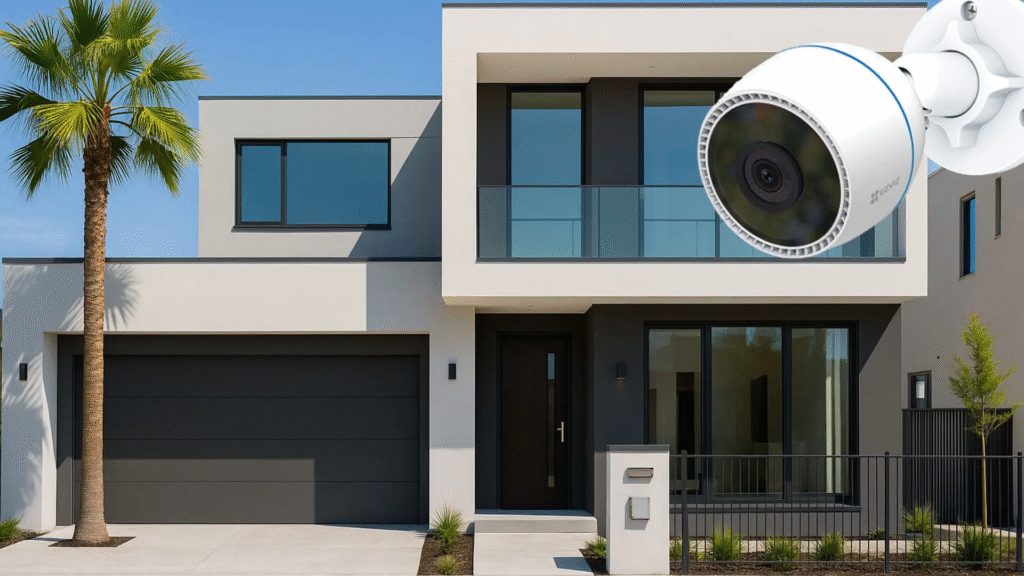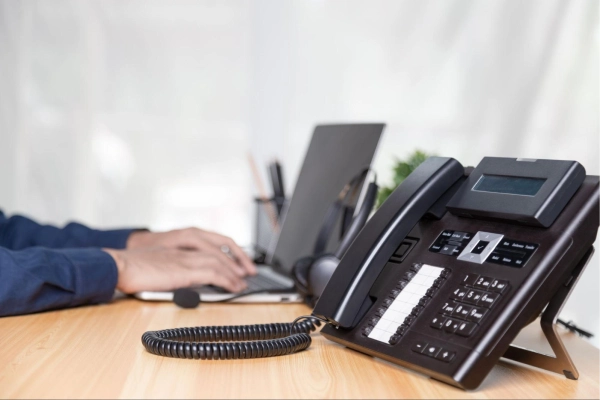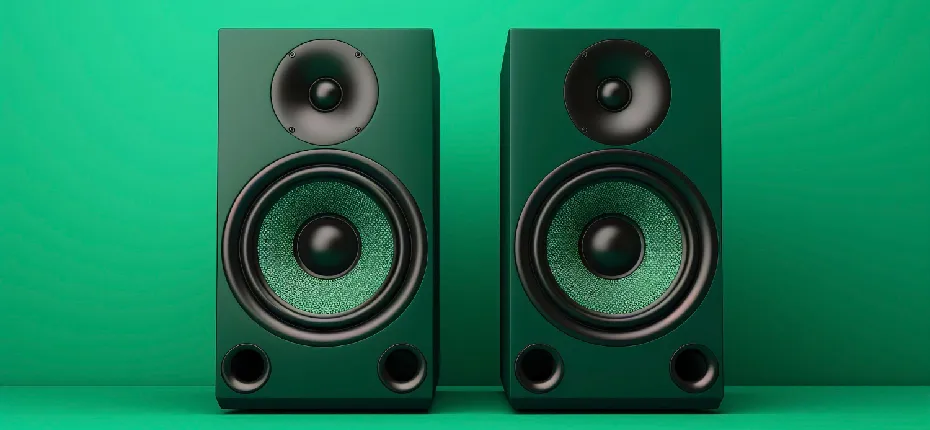How to Plan CCTV Camera Installation for Maximum Coverage in Your Villa or Apartment
You bought expensive cameras, but blind spots still leave your home vulnerable. Here’s the truth: even top-quality CCTV systems fail when cameras aren’t placed correctly. Wrong positioning creates gaps that intruders can exploit, making your security investment worthless.
Smart CCTV installation for a home in Dubai needs more than randomly mounting cameras on walls. It requires careful planning that covers entry points, considers lighting, and protects against real threats. Learning proper placement turns good equipment into complete protection for your family and belongings.

Pre-Installation Planning: Laying the Groundwork for Full Coverage
Before installing anything, walk through your property and identify all entry points, front doors, back doors, gates, balconies, and ground-floor windows. These are your weak spots that need camera coverage first.
Mark areas with valuable items like electronics, jewelry, or important documents. Notice where family members and visitors walk most often. Check lighting conditions, especially dark areas at night, that need cameras with strong night vision.
Think about your property’s unique risks. Does your villa border empty land? Are there hidden corners where someone could sneak in unnoticed? Do apartment balconies face busy or quiet areas? These details help determine the best CCTV placement UAE experts recommend.
Draw a simple map showing where cameras should be placed, their viewing angles and anything blocking their view, like trees or pillars. This plan helps spot coverage gaps before installation starts.
Camera Placement Strategy: Covering Every Key Zone
Front Entrances and Main Doors
Place cameras at eye level to capture faces clearly as people approach. Mount them 2.5–3 meters high, angled downward to record facial features and body details. This helps identify delivery people, guests, or unwanted visitors. Dome cameras work well here because they look discreet and resist tampering.
Driveways, Garages, and Parking Areas
Cover your entire driveway with cameras that overlap their viewing areas. Put one camera near the gate to capture vehicle license plates, and another covering the parking spot showing who gets out and walks toward your home. Weatherproof bullet cameras are ideal for outdoor spots, while PTZ cameras offer flexible coverage for large driveways.
Living Rooms, Hallways, and Staircases
Indoor cameras monitor movement inside and provide proof if break-ins happen. Install cameras in room corners with wide lenses covering the whole space. Hallways need cameras at both ends so no one moves through your home unseen. For staircases, place cameras above to capture faces as people climb up. Small dome cameras blend with your décor while providing good surveillance.
Backyard, Garden, or Terrace Areas
These spaces often get ignored despite being common entry points. Position cameras watching fence lines, garden gates, and ground-floor windows accessible from yards. For homes with pools or outdoor areas, coverage protects against accidents and provides legal protection. Weather-resistant bullet cameras with night vision handle Dubai’s climate while recording clear footage after dark.
Shared Spaces in Apartments or Gated Communities
If your building allows it, cover shared hallways leading to your unit. In villas within gated areas, work with neighbors to monitor shared walls or nearby access points. This team approach to CCTV installation for a home in Dubai creates neighborhood security that is more effective at stopping threats.
Indoor vs. Outdoor CCTV Positioning: Best Practices for UAE Homes
Outdoor cameras face Dubai’s extreme heat, humidity, and sand. Choose models rated IP66 or IP67 that resist dust and water. Position them under the roof edges whenever possible to extend their lifespan. Make sure morning and afternoon sun doesn’t create bright glare that blocks footage, cameras facing south and west need careful angle adjustment.
Indoor cameras focus on staying hidden while covering large areas. Place them where they’re visible enough to discourage crime but don’t dominate the room’s appearance. Avoid pointing cameras at windows because backlighting during the day and reflections at night ruin image quality.
Even indoors, temperature matters. Don’t mount cameras near air conditioning vents where temperature changes create fog on lenses. Keep units away from heat sources like kitchen equipment, which can damage components faster.
Height, Angle, and Lens Considerations: Achieving Optimal Coverage
The best CCTV placement UAE professionals use balances crime prevention with evidence collection. Mount outdoor cameras 2.5–3.5 meters high, low enough to capture faces clearly but high enough to prevent damage. Too high records only heads; too low invites vandalism.
Angle cameras 15–30 degrees downward for best facial recognition. Straight views capture faces well, while steep downward angles show only the tops of heads. Test angles during setup by walking through the area while checking footage quality.
Lens choice affects coverage width. Wide lenses (2.8mm–3.6mm) cover large areas but lose detail at distance. Narrow lenses (6mm–12mm) capture distant details like license plates but reduce coverage width. Smart CCTV installation for a home in Dubai mixes both types, wide angles for general watching, and narrow lenses for specific targets like gates.
Network and Power Planning: The Backbone of Reliable CCTV Systems
IP camera systems need a strong network setup. Place your recorder centrally with wired connections to cameras when possible, wireless systems face interference from thick villa walls and neighbor WiFi networks. For apartments in crowded areas like Dubai Marina, wired connections avoid signal problems.
Check if your internet can handle multiple cameras streaming at once. Ensure your plan supports remote viewing without slowing down household internet. Quality CCTV installation for a home in Dubai often includes separate networks, keeping surveillance separate from regular internet use.
Power planning prevents failures. While PoE cameras get power through network cables, traditional cameras need dedicated power outlets. Install backup power supplies, ensuring cameras keep recording during power cuts, which is important since incidents often happen when electricity fails.
Testing and Calibration: Fine-Tuning for Perfect Results
After installation, test every camera during the day, evening, and night. Walk through coverage areas while reviewing footage quality. Check that motion detection works without false alarms from pets, shadows, or moving branches. Adjust settings to balance security alerts with avoiding too many notifications.
Test night vision when it gets dark. Make sure the camera can see the intended distance without creating overexposed bright spots. Verify recording quality meets your needs, default settings often prioritize saving storage space over image quality.
Test remote viewing from phones and computers, to confirm you can see live feeds from anywhere. Check that alerts reach your devices quickly, as delayed warnings defeat security purposes.
Professional Installation vs. DIY: Why Expertise Saves Time and Money
DIY installation seems cheaper but creates risks. Wrong placement leaves blind spots you won’t notice until problems occur. Bad network setup causes connection failures. Poor cable work creates fire hazards or breaks building rules.
Professional installers know how to assess sites and spot vulnerabilities you might miss. They understand the best CCTV placement in the UAE conditions require, considering sun angles, weather patterns, and common security threats in Dubai areas. Their work includes warranties covering equipment and installation quality.
Professionals also plan for future needs, recommending systems that let you add more cameras or upgrade equipment easily. Companies like ZAS Tech provide quick support when issues arise, reducing the time your property stays unprotected.
How ZAS Tech Ensures Maximum Coverage and Reliability
Complete Property Reviews: Expert technicians check your villa or apartment, finding all weak zones and suggesting the right number and positions of cameras for your property’s unique layout.
Custom Planning: Instead of standard packages, ZAS Tech creates coverage plans addressing your specific worries, monitoring children in yards, protecting valuables, and preventing package theft.
Right Equipment Choice: Recommendations match cameras to their intend use, sharp cameras for face recognition, wide cameras for general watching, and special models for difficult lighting.
Expert Setup: Certified teams handle professional mounting, hidden cabling, network optimization, and thorough testing, ensuring every camera works reliably under Dubai’s tough conditions.
Ongoing Help: Training teaches you how to use the system, features of the phone app, and basic care. Technical support answers questions, ensuring your security investment remains effective.
Secure Every Corner of Your Home with Strategic CCTV Planning
Effective CCTV installation for a home in Dubai goes beyond equipment quality, smart placement determines whether your system truly protects or just records blind spots. Understanding coverage basics, following the standards for the best CCTV placement in the UAE homes and working with experienced professionals ensures complete security, matching your property’s specific risks.
Don’t risk your family’s safety with guesswork installations. ZAS Tech’s free property checks identify your coverage needs and design systems delivering maximum protection within your budget.
Visit zastechllc.com to schedule your free security consultation and discover how professional planning creates the complete coverage your villa or apartment deserves.
FAQs
What is the best CCTV placement for villas in Dubai?
Cover all entry points, front doors, back doors, gates, and ground-floor windows. Watch driveways to capture vehicle plates and parking areas showing who approaches. Monitor backyard edges and hidden areas where intruders might enter. Position cameras 2.5–3 meters high at 15–30 degree downward angles for best face recognition while preventing damage.
Should I install indoor and outdoor cameras together?
Yes, complete security needs both. Outdoor cameras deter intruders and document break-ins, while indoor cameras track movement in the event of entry, clearly identify intruders, and provide evidence for police. This layered approach also protects against inside threats and monitors household staff, creating full coverage that outdoor-only systems miss.
Do wireless CCTV cameras work well in apartments in Dubai Marina?
Wireless cameras work but face challenges in crowded areas. Concrete walls, steel frames, and neighbor WiFi create interference, reducing reliability. For important coverage spots, wired connections ensure steady performance. If wireless is needed for flexibility, professional installers check signal strength during planning and recommend the best solutions for your specific apartment layout.







